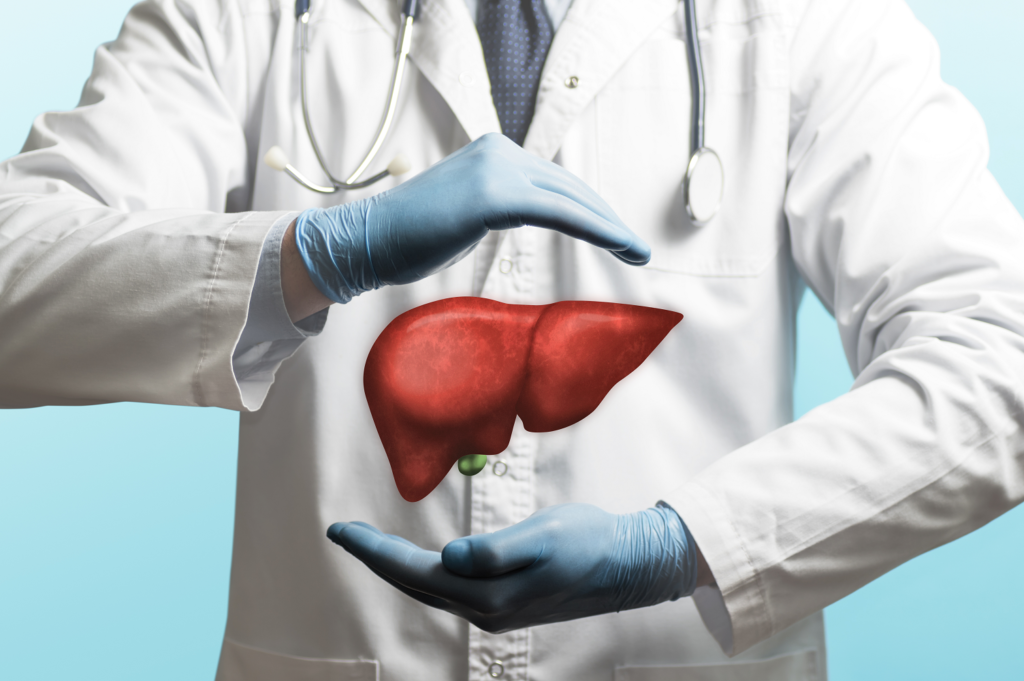The Unsung Hero of Digestive Health: How a Healthy Liver Aids Weight Loss and Eases Hangovers
Introduction
When most people think about digestive health, the focus is often on probiotics, fiber intake, and a balanced diet. However, the liver, your body’s unsung hero in digestive health, tends to get sidelined. This powerhouse organ not only plays a pivotal role in metabolism but also in the detoxification processes that keep your system running smoothly. If you’re in your mid-30s or beyond and either already experiencing digestive problems or concerned about future issues, taking a closer look at liver health may offer you multifaceted benefits. These benefits range from aiding in weight loss to making hangovers less daunting—an assertion backed by scientific studies that we will delve into.
The Liver’s Critical Role in Digestion: A Symbiotic Relationship
Often referred to as the body’s “chemical factory,” the liver performs over 500 functions, and digestion ranks high among them. The liver produces bile, a yellowish-brown liquid that is stored in the gallbladder and secreted into the small intestine during digestion. Bile’s primary role is in the emulsification of fats, breaking them down into smaller, digestible molecules and enabling the absorption of fat-soluble vitamins such as A, D, E, and K1. By facilitating the digestive process, a healthy liver thus indirectly supports optimal nutrient absorption and aids in efficient metabolism. When your liver is functioning well, nutrients from the foods you consume are better utilized for energy, reducing their storage as fat in the body. In simpler terms, a healthy liver can contribute to weight loss or at least weight management, forming an important aspect of digestive health that is often overlooked.

A Healthy Liver as a Catalyst for Weight Loss: The Scientific Connection
The link between a healthy liver and weight loss isn’t merely anecdotal; it’s grounded in science. Research has shown that the liver plays a significant role in metabolic rate and the effective expenditure of energy2. When your liver is functioning optimally, it can more efficiently metabolize fats and carbohydrates, both critical aspects of weight management. On the flip side, liver diseases like Non-alcoholic Fatty Liver Disease (NAFLD) can drastically impede this metabolic process. NAFLD is increasingly common in adults over 35 and is often associated with obesity. A liver burdened with fat storage from NAFLD has a harder time performing its metabolic duties, which can result in weight gain or make weight loss far more challenging3. Therefore, focusing on liver health offers a two-pronged advantage: better digestive health and a more effective route to weight loss or management.
The Liver-Hangover Nexus: How a Well-functioning Liver Eases Post-drinking Blues
Now let’s shift our attention to a more socially relevant issue: hangovers. While we all know excessive drinking is bad for health, the role of the liver in mitigating the after-effects of alcohol is less widely discussed. Hangovers are essentially your body’s reaction to the intoxication and toxicity caused by alcohol and its byproducts, notably acetaldehyde4. Your liver is responsible for metabolizing alcohol and converting it into less harmful substances. A liver in good health can perform this task more efficiently, helping to expedite the removal of acetaldehyde and other toxic substances from your system. This process can significantly alleviate the severity of hangover symptoms. For example, studies indicate that natural supplements like milk thistle can support liver function and lessen the symptoms of hangovers5.
Practical Strategies for Maintaining Liver Health
So, how can you ensure your liver is in tip-top shape? Here are some comprehensive strategies:
- Dietary Choices: Foods rich in antioxidants like leafy greens, berries, and whole grains can help fight inflammation in the liver. Omega-3 fatty acids found in fatty fish like salmon are also known to improve liver fat levels and inflammation.
- Hydration: Staying hydrated not only aids in digestion but also helps the liver in its detoxification processes. Water is essential for nearly all of your body’s biochemical reactions, including those that take place in the liver.
- Alcohol Moderation: While social drinking is a common practice, excessive alcohol consumption is detrimental to liver health. Cutting back on alcohol, or abstaining entirely, can provide your liver the respite it needs to perform its functions optimally.
- Regular Exercise: A lifestyle that includes regular physical exercise has been shown to improve liver health by combating fatty liver disease, thereby aiding both digestion and weight management.
Conclusion
As we age, especially once we pass the 35-year threshold, focusing on liver health becomes not just a preventative measure against digestive issues but also a proactive strategy for managing weight and enhancing your social life by making hangovers more tolerable. Understanding the liver’s integral role in these aspects of your health is crucial. Through scientific insights and practical steps, we can all better appreciate this often-overlooked organ and the manifold benefits it offers in digestive health, weight management, and general well-being.
References
Footnotes
- Hofmann, A. F. (1999). The continuing importance of bile acids in liver and intestinal disease. Archives of Internal Medicine, 159(22), 2647–2658. Link ↩
- Anstee, Q. M., & Day, C. P. (2015). The genetics of NAFLD. Nature Reviews Gastroenterology & Hepatology, 12(5), 271–279. Link ↩
- Younossi, Z. M., et al. (2018). Global epidemiology of nonalcoholic fatty liver disease—Meta‐analytic assessment of prevalence, incidence, and outcomes. Hepatology, 64(1), 73–84. Link ↩
- Swift, R., & Davidson, D. (1998). Alcohol Hangover: Mechanisms and Mediators. Alcohol Health & Research World, 22(1), 54–60. Link ↩
- Vargas-Mendoza, N., et al. (2014). Hepatoprotective effect of silymarin. World Journal of Hepatology, 6(3), 144–149. Link ↩



